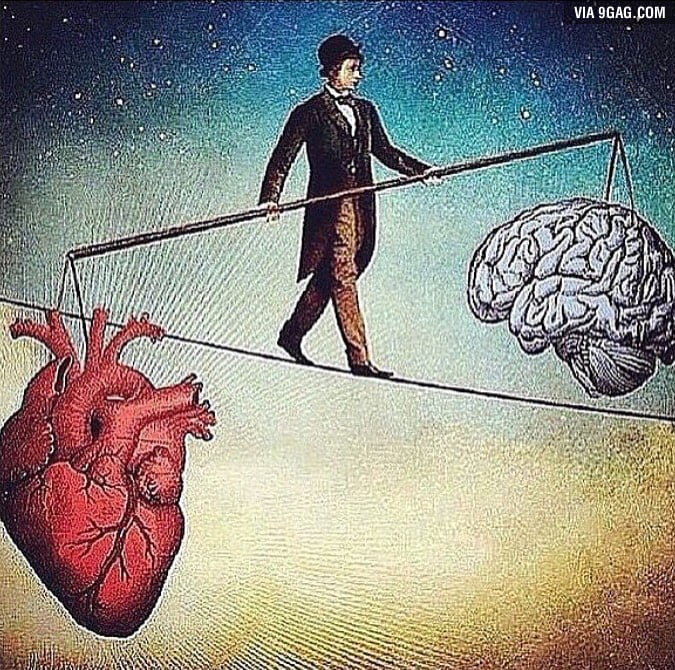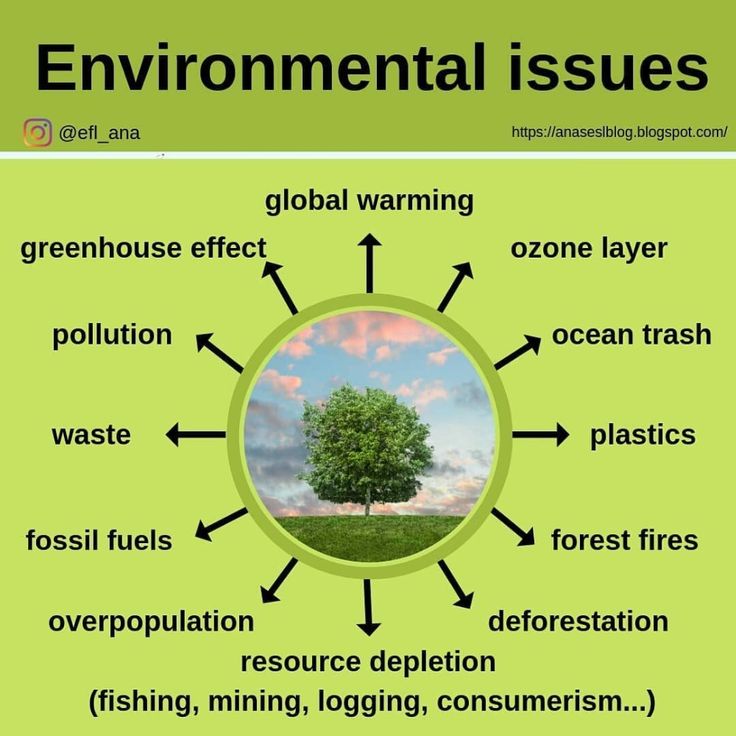Signs of manipulation in a friendship
The Signs of a Manipulative Friend
(This article appeared previously on Grandparents.com.)
Does it feel like you’re always giving — and one of your friends is always taking? Or does it seem like your friend never makes time for you — but always expects you to be there for her? Your pal might be playing you for a sucker.
How did you fall victim to a one-sided friendship?
People who have a poor self image and suffer from insecurity get a false sense of power and control in their lives by taking advantage of their friends and family, says Michael Salamon, a licensed psychologist and a fellow of the American Psychological Association. Other people manipulate their friends because they’re simply narcissists. “They truly believe that they know better than anyone else and the perspectives that other people have are irrelevant,” explains Salamon.
But don’t blame yourself for your friend’s bad behavior. It’s easy to fall victim to manipulators — especially when they trick you into feeling sorry for them or make you believe that they’re somehow smarter than you.
Wonder whether your friend is actually more like your frenemy? Read on for seven hallmarks of a friend who is manipulating you:
1. Your friend isn’t listening when you speak.
“The number one sign that you’re being manipulated by a friend is a feeling in the pit of your stomach that your friend is not hearing what you are really saying when you’re speaking to them,” says Salamon, who wrote Every Pot Has a Cover: A Proven System for Finding, Keeping and Enhancing the Ideal Relationship.
While your pal may be looking at you while you're talking, it feels more like she's staring right through you. Or maybe it seems like what you’re saying to her is going in one ear and out the other. While it’s totally normal for everyone to have off-days when they can’t engage well in a conversation, if you feel like your friend tuning you out is a regular occurrence — and that she only becomes engaged when she’s the one doing the talking — it might be time to move on from the friendship.
2. Your friend has nothing nice to say.
Be wary of friends who talk negatively about other people, says Melissa Cohen, a therapist in private practice in Westfield, N.J. “If someone has a bad thing to say about almost everyone, she’s also probably talking badly about you when you aren’t around,” Cohen says.
Manipulators may say that they’re only telling you other people’s business because they know you won’t tell anyone, but manipulative people say that to everyone as they spread their gossip. “You may want to believe that your friend would never betray you like she does to others, but it’s only a matter of time before she exploits your trust when it benefits her,” says Cohen.
3. Your friend only gets in touch when he or she needs something.
One of the top warning signs your friend is manipulating you: “She doesn’t contact you or have time for you unless she wants you to do something for her,” says Dr. Carole Lieberman, a Beverly Hills-based psychiatrist and author of
Bad Girls: Why Men Love Them & How Good Girls Can Learn Their Secrets.
Feel like you’re constantly doing favors for her but don’t get a lot of payback in return? If she’s not there when you need a friend, but then suddenly appears when she needs a shoulder to cry on or a helping hand, watch out.
4. Your friend lays on the guilt.
Manipulators use guilt to make you feel sorry for them. “Many manipulators use emotional warfare, like guilt-tripping, to get you to do what they want,” says Cohen.
Your friend might say things like, "After all I’ve done for you, can’t you help me out?"
Manipulators might compare you negatively to other friends or rally imaginary allies to their cause, saying things like, "Even Shirley thinks I’m right" or "Everyone says you can’t be counted on."
5. Your friend needs to be in charge.
All. The. Time. Does your friend get mad at you for not wanting to do whatever he's asking? Does he try to constantly convince you to do things his way — even though you may have a good reason to do things differently?
“When someone is unwilling to see someone else’s point of view or only think that their way is the right way, you are at risk of being double-crossed by them,” says Cohen.
Advertisement
Another take on this: “Your friend is a know-it-all who is always right — even when you know they’re wrong,” says Salamon.
6. Your friend doesn’t have time for you.
Everyone gets busy. Everyone has weeks or even months when life takes over. But if your so-called friend tells you that she has no time to socialize with you, but then routinely makes time for other friends, it's a sign that she might be skirting you for people who are more useful to her at the time, says Lieberman.
“Manipulators only make time for people who can serve them and who they can benefit more from at that particular time in her their lives,” she says.
7. Your friend asks for favors.
A lot. “Manipulators are great at figuring out how to get their needs met,” says Cohen. And to get their needs met, a manipulating person often creates friendships with people (like you!) who are natural givers. “Their requests and accommodations start small and you might not mind it at first,” explains Cohen, ”but as their requests become more frequent or weightier, it becomes apparent that you might be getting played. ”
”
Oddly, manipulative friends often seems to be completely oblivious that you’re helping them or that they should be reciprocating.
For example, let’s say Judy does not like driving, so she asks her friend Liz to drive her to book club, which they both attend regularly. Liz agrees to drive. But after a few months, Liz realizes she always drives and starts feeling like Judy is taking advantage of her. “With most people, there is an assumption of reciprocity, but for Judy, she simply assumes that it’s Liz’s pleasure to drive her every time,” explains Cohen. But Liz didn’t agree to drive her every time and hasn’t asserted herself to say, "Hey Judy, it’s your turn." So she begins to resent Judy — and “resentment damages the relationship as much as a lack of reciprocity,” says Cohen.
Turn it around by speaking up when you feel like you’re being taken advantage of — which will nip rising animosity in the bud and maybe even level the friendship playing field.
What You Should Do
If you find yourself with a friend who is constantly taking advantage of you and not seeing your needs, you've got two choices: Confront her, or end the friendship. Experts agree that it's best to walk away from a toxic friendship since the pattern can continue to happen again and again, which can impact how you feel about yourself.
Experts agree that it's best to walk away from a toxic friendship since the pattern can continue to happen again and again, which can impact how you feel about yourself.
"The best way to stop manipulating behavior is to first acknowledge to yourself that it is happening," says Salamon. "Very few people are actually aware that they are being taken advantage of, at least initially."
Once you are aware that you are being manipulated, he says, it is best to not respond to any and all manipulations. If you do, the manipulator may try harder to keep you in his or her grasp.
"If there is, in fact, an important reason to preserve the relationship, you have to ask if the manipulator is aware that they are taking advantage," he says. "If they are not, that usually means the friendship will get tuned down a notch, maybe to the level of an acquaintanceship or perhaps even less, to no contact at all."
The most important thing if you are going to try to maintain a relationship with a manipulator: You have to develop a strategy to protect yourself, and make sure it works.
Share
Cari Wira Dineen is a New Jersey-based editor, writer and author. Read More
By Grandparents.com
Grandparents.com is a lifestyle website, social media community & peer group that unites & connects America's 70 million Grandparents to the best information and premier products & services just for them. Our goal is to promote well-being and give timely information on what really matters to you, from health and money to family and relationships to travel and retirement.
7 Strong Signs Your Friend Is Emotionally Manipulative
We sense that there’s something wrong with the way a particular person relates to us. We sense that we feel drained emotionally whenever we encounter them, but often, we don’t give much attention to the thought. Why?
The strategies of an emotional manipulator are subtle. They can be close friends, family, or work colleagues. Sometimes their manipulations are intentional. In some cases, it’s just a way they’ve learned to live their lives. It’s how they have fun.
It’s how they have fun.
Emotional manipulators see people as objects to move around and twist to satisfy their needs. One thing they all have in common is that they’ll draw energy from you and actively try to make you feel worse emotionally.
And according to science, studies, and psychologists, here are some of the major signs you’re dealing with an emotional manipulator.
Table of Contents
1. TriangulationIn psychology, triangulation is one of the most common toxic behaviors. Though usually common with narcissists, it can be used by anyone to emotionally manipulate and sow confusion.
In triangulation, one person wants to use a three-person interpersonal relationship for their benefit. Sometimes they do this by intentionally bringing a third person into the relationship.
For instance, maybe Cynthia is feeling a bit ignored in her relationship. Instead of trying to talk things out with her partner, she decides to bring in a third party into the relationship. This might be an old friend or a colleague at work, for the sole purpose of making her partner feel jealous and confused. Now both the colleague at work and her partner will have to fight for her attention, sowing discord between the two of them in the process.
This might be an old friend or a colleague at work, for the sole purpose of making her partner feel jealous and confused. Now both the colleague at work and her partner will have to fight for her attention, sowing discord between the two of them in the process.
Triangulators might also use others to make themselves special.
For instance, Tracey has two friends, Ashley and Brittany. In the threesome, Tracey is the dominant element, the connector, because she’s good friends with Ashely and Briteny. But when alone with Ashely, Tracey will talk down Briteny. And when in front of Briteny, she talks down to Ashley.
This way she makes herself the price since both friends think she’s on their side.
A triangulator sees people as objects, an extension of themselves they can use for whatever purpose they want.
Interesting read: 5 Defining Traits of Highly Toxic People
2. Projection
Have ever met people who pick faults like everyone who lives around them owes them perfection, but when the fault is from them, then there’s always a rational explanation behind it? That’s projection.
Another thing about people who project is that they expect everyone to live by their value system.
For instance, Mr. John believes in the existence of a supernatural God. He comes across Stephan who doesn’t. As a result, he judges everything Stephan does in a negative light, believing it’s only believers who are morally upright and without sin.
As a result, he talks ill about Stephan to his friends and family. Stephan’s image is tarnished even though he’s just as decent or even better than Mr. John.
However, Mr. John, in his righteousness, overlooks similar immoral actions that he has done in the past or is still doing.
3. Early Attachment“When we project,” wrote Darlene Lancer in Psychology Today, “we are defending ourselves against unconscious impulses or traits, either positive or negative, that we’ve denied in ourselves.”
In his bestselling book, The Laws of Human Nature, Robert Greene explained that friends who later turn out to be enviers are usually very eager to be friends in the first place. Why?
Why?
Well, as Robert further explained, the very reasons they were attracted to you in the first place will be the same reason they’ll envy you in the future.
As Kimberly Holland also explained in Healthline, emotional manipulators will often not want to take their time to get to know you first. And the major reason they do this, according to Kimberly, “Is to make you feel special so that you divulge your secrets.They can use these sensitivities against you later.”
Related read: 6 Critical Signs Of A Toxic Friendship You Shouldn’t Ignore
4. They Pose As Friends But Act as Spies
Before you choose to become friends with someone, there must have been aspects of them you really liked. Maybe they were very friendly, intelligent, or funny. You saw them display these attributes, you liked that part of them, and you reached out for friendship.
But after you become close to someone, you begin to see certain aspects of their lives that are not visible to those on the outside.
For instance, you realize that behind the confident and jovial exterior, they are highly sensitive. Maybe they’ll begin to confide in you about some of their fears and insecurities.
How people handle this point of friendship tells the difference between a good and a bad friend. A good friend will empathize with you, a bad friend will only use it as an instrument to manipulate you emotionally.
If, for instance, you’re a highly sensitive person, an emotionally manipulative person, already aware of your sensitivity will intentionally give a harsh comment about a piece of clothing they feel doesn’t look good on you, killing your spirit in the process.
If you have a friend who appears to know exactly how to act or speak in a way that will get to you emotionally, you might be facing an emotional manipulator.
5. Passive AggressionPassive aggression is one of the major tools emotionally manipulative people use to catch their victims off guard.
Especially when someone already envies you, passive aggressions are like emotional leakages. The passive aggressor has things they want to say to you, but they’ll rather say it in a non-confrontational way. Why?
Confrontations are serious (and difficult). It’s for grown-ups. And when things get serious you are going to get a chance to address the elephant in the room and clear the air. That’s not fun for them.
For them to toil with your mind they have to leave you wondering. They want to keep their comments to you casual but poisonous at the same time. That’s where the fun is for them.
As subtle as passive aggression may be, it’s a very effective strategy. Passive-aggressive comments can mess with your mind, sometimes for days on end.
Hence, the best way to go about it is to address the elephant in the room. Call the passive aggressor and name their behavior. Let them know you see what they are doing. If they have something to tell you, they should say it instead of casually bringing tension into every encounter they have with you.
Related read: 10 Signs You Should Stay Away From Someone
6. They Feel Better by Making You Sad
People who are happy about your misfortune will rarely show it to your face. They cannot risk appearing to others as sociopaths. However, the need for emotionally manipulative people to make others feel sad often gets the better of them.
You can spot this by how they always want to confuse you with their passive-aggressive comments. They’ll often catch you off guard, and cover what they just said with a smile like it didn’t just happen.
You can’t attack them head-on because they’ll make you appear like you’re overreacting. But you can’t also pretend like what just occurred didn’t happen. They’ve subtly sowed the seed of discomfort in you.
7. Poke Holes In Your Self-EsteemOne of the major reasons we must be careful about the kind of friends we keep is that when we become close to someone, we place a lot of importance on their judgments.
No matter how much we are told to not give a f*ck about what everyone else thinks, it’s not just realistic.
We are going to think about what a particular micro-expression from someone means. Emotional manipulators are good at using this aspect of human nature to their advantage.
They’ll intentionally give you a disturbing look because they know you can’t shake it off easily. They’ll give off comments about projects that are important to you just to keep you off balance.
If, for instance, you have a friend that likes to compare you with everyone else you know that is already doing well, don’t assume they are doing it with good intentions.
If a friend wants you to level up, there are better ways to help you or bring it to your attention than subtly insinuating that everyone you know is doing better than you.
Final Thoughts
Emotionally manipulative friends are usually hard to spot because their tactics can be subtle. Their passivity and closeness to us can make it hard to confront them.
But often, we can tell that there’s something wrong with our relationship with someone simply by how they drain us whenever we engage with them. If you spot some of these signs in anyone, you might need to be more alert or distance yourself for the sake of your mental health.
Also read: How to Handle A Manipulative Person
7 signs that your friends are manipulating you
We are accustomed to consider friends as those people who will absolutely not harm us (at least not intentionally). But in fact, emotional blackmail and manipulation by friends is quite common. The thing is that close people, taking advantage of our gullibility and love, as well as the knowledge of our weaknesses, consciously or not, can, as they say, "cross the line." And we, in turn, suffering from remorse, follow the lead of our loved ones, not even noticing that we are simply being manipulated.
The most honest thing to say about this situation is that our friends weren't born to be great manipulators, we let them be. We realize that we are being used and our feelings are skillfully manipulated for our own benefit, often already at a moment when the only possible solution to this problem is breaking friendships.
We realize that we are being used and our feelings are skillfully manipulated for our own benefit, often already at a moment when the only possible solution to this problem is breaking friendships.
In order to prevent this "last resort", we propose to consider the main signs by which you can determine that your friend is trying to manipulate you.
1. You are often hired “poorly”
Hiring a person, as they say, “poorly” is the easiest way to get what you need from him without arousing unnecessary suspicion. In such a situation, a person of his own free will will do everything to satisfy the desire of the "applicant" - of course, so as not to look like a "sucker". There is nothing more to add here. If someone does not want to ask you to do something for no reason, he will definitely take you for granted.
2. Your friend never does anything selflessly
Your every request will be granted, but at what cost? You will definitely be immediately asked for a reciprocal service or favor. You may even think that this is normal, but ask yourself, do you yourself act in this way towards your friends? Most likely, the answer will be negative. This is because friendship is a selfless concept in itself. It implies voluntary assistance, which has no price.
You may even think that this is normal, but ask yourself, do you yourself act in this way towards your friends? Most likely, the answer will be negative. This is because friendship is a selfless concept in itself. It implies voluntary assistance, which has no price.
7 toxic “friends” you will meet at least once in your life and how to recognize them
3. Your friend is always there when he is in trouble, and is never present in your life when you are in trouble
You are familiar with this situation: every time your friend calls you at any time of the day or night, you are here do you rush to him, dropping all your affairs, and try to support him by any means? If you do this, you can be called a good friend. However, if your friend does not return the same to you, you can be called a person who is successfully manipulated. Friendship does not involve one-sided help, but support from both sides. Remember this.
4. You realize that you cannot trust your friend 100%
There can be many reasons for this. For example, once upon a time, your friend could not keep secret information that was significant to you, or in the past, having shared something important, you faced condemnation from his side, although you hoped for support. In any case, distrust is not groundless. If you have ever been let down, it is possible that it will happen again. So you remain extremely vigilant, for which it is difficult to reproach you.
For example, once upon a time, your friend could not keep secret information that was significant to you, or in the past, having shared something important, you faced condemnation from his side, although you hoped for support. In any case, distrust is not groundless. If you have ever been let down, it is possible that it will happen again. So you remain extremely vigilant, for which it is difficult to reproach you.
5. You often do not show that you are offended by your friend
Perhaps this is because any offense on your part is immediately suppressed: “I am your friend and I only wish you well” or “No one but me dare not tell you." Are you familiar with similar statements? If yes, congratulations: you have encountered a manipulator. And, by the way, he is very strong, since you chose humility and avoidance of conflict, instead of defending your opinion.
6. Your friend plays on your guilt
Manipulators who play on guilt tend to be very smart, cunning, and selfish. They are not shy about putting pressure on pity with all their might, trying to get any help out of you. For example, they may call you at night with another problem or ask you to stay with you for a week or two, because “you are the only person I can turn to who will listen to me and understand” or “if not you, then no one will help me ". Thus, you have two options: to help, even to the detriment of yourself, and remain a good person in his eyes, or refuse and live with guilt, because, we repeat, no one could help except you. Of course, you choose the first option, and work, children, relatives, and so on are dumped on you without remorse in order to disappear “on urgent business.”
They are not shy about putting pressure on pity with all their might, trying to get any help out of you. For example, they may call you at night with another problem or ask you to stay with you for a week or two, because “you are the only person I can turn to who will listen to me and understand” or “if not you, then no one will help me ". Thus, you have two options: to help, even to the detriment of yourself, and remain a good person in his eyes, or refuse and live with guilt, because, we repeat, no one could help except you. Of course, you choose the first option, and work, children, relatives, and so on are dumped on you without remorse in order to disappear “on urgent business.”
7. Nostalgic stories are always followed by some kind of request
“Do you remember…” — and you have already begun to indulge in memories from your childhood, but then another request for help/favor comes to you. You may not pay attention to such a situation, because the manipulator is doing everything to distract you. First, he makes you remember something good that connects you and strengthens your friendship, and only then asks for a favor.
First, he makes you remember something good that connects you and strengthens your friendship, and only then asks for a favor.
Of course, after positive emotions, you will gladly agree to everything that is asked of you. Therein lies the trick. How can you refuse a friend with whom you once fought off yard gopniks or with whom you first got into a real harsh campaign? Even if his request violates all your plans, you will break into a cake, but you will try to do it, right?
15 rules that will help you look at friendship objectively
How to recognize a manipulator - five sure signs / HB
March 30, 2021, 11:33 PM
If you feel that you are not getting any return from your relationships with friends, consider that you may be dealing with manipulators. And this can hardly be called friendship...
Manipulation is not so easy to detect, especially in friendships. But psychologists name several signs that allow you to understand that you are being used in friendship. Take a closer look to see if you see anything similar in your relationship with your girlfriend.
Take a closer look to see if you see anything similar in your relationship with your girlfriend.
Video of the day
1. Passive aggression
Constant complaints, dissatisfaction, claims are all signs of a toxic relationship and passive aggression. Such people avoid direct confrontation, but by any means they impose on you a sense of guilt and responsibility for everything bad that happens to them.
2. You are not being heard
You are definitely talking to your girlfriend, but you often get the feeling that this is a “one-way” process. The conversation rarely touches you, and when it does, it feels like your girlfriend isn't listening to you. Perhaps at this point she is actively responding to messages on her phone or interrupting your story to say something off topic. As a result, you only discuss her problems and what is interesting only to her.
3. You constantly “must”
Requests from her also come unilaterally. It is extremely important for a friend that you fulfill them, regardless of the meaning of the request itself. And if you refuse for some reason, reproaches, insults, sometimes blackmail await you - in a word, manipulation. You have to admit that manipulators are very good at making you feel like you owe them something. And they are good at it.
And if you refuse for some reason, reproaches, insults, sometimes blackmail await you - in a word, manipulation. You have to admit that manipulators are very good at making you feel like you owe them something. And they are good at it.
Manipulation / Photo: freepik.com
4. Control over the situation
Your meetings take place mainly at her initiative, at a convenient time for her and on her territory or in a place she knows well. She wants to always be in control. She may even try to force you out of your comfort zone to make you feel vulnerable and dependent on her. Familiar?
5. Silent defense
You can hardly count on the help of such a friend. She always has a lot of excuses and important things that prevent her from supporting you. And if you make claims, she will take a defensive position, will defend herself and will never admit her guilt. And then he will lay it on you. Another clear sign of a manipulator.
If you have reason to believe that your girlfriend is manipulating you and the relationship has become toxic, think it might be better to completely abandon such friendship.














